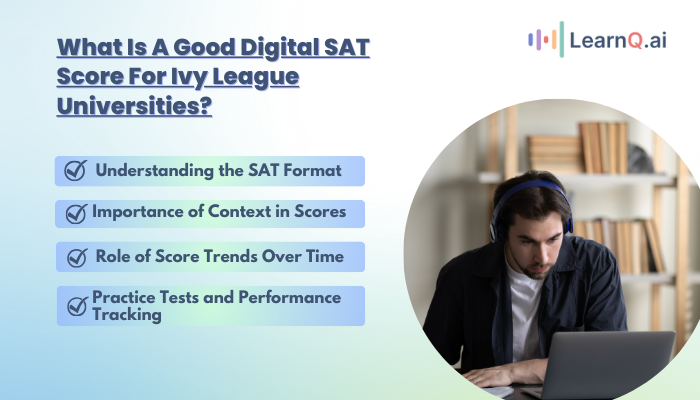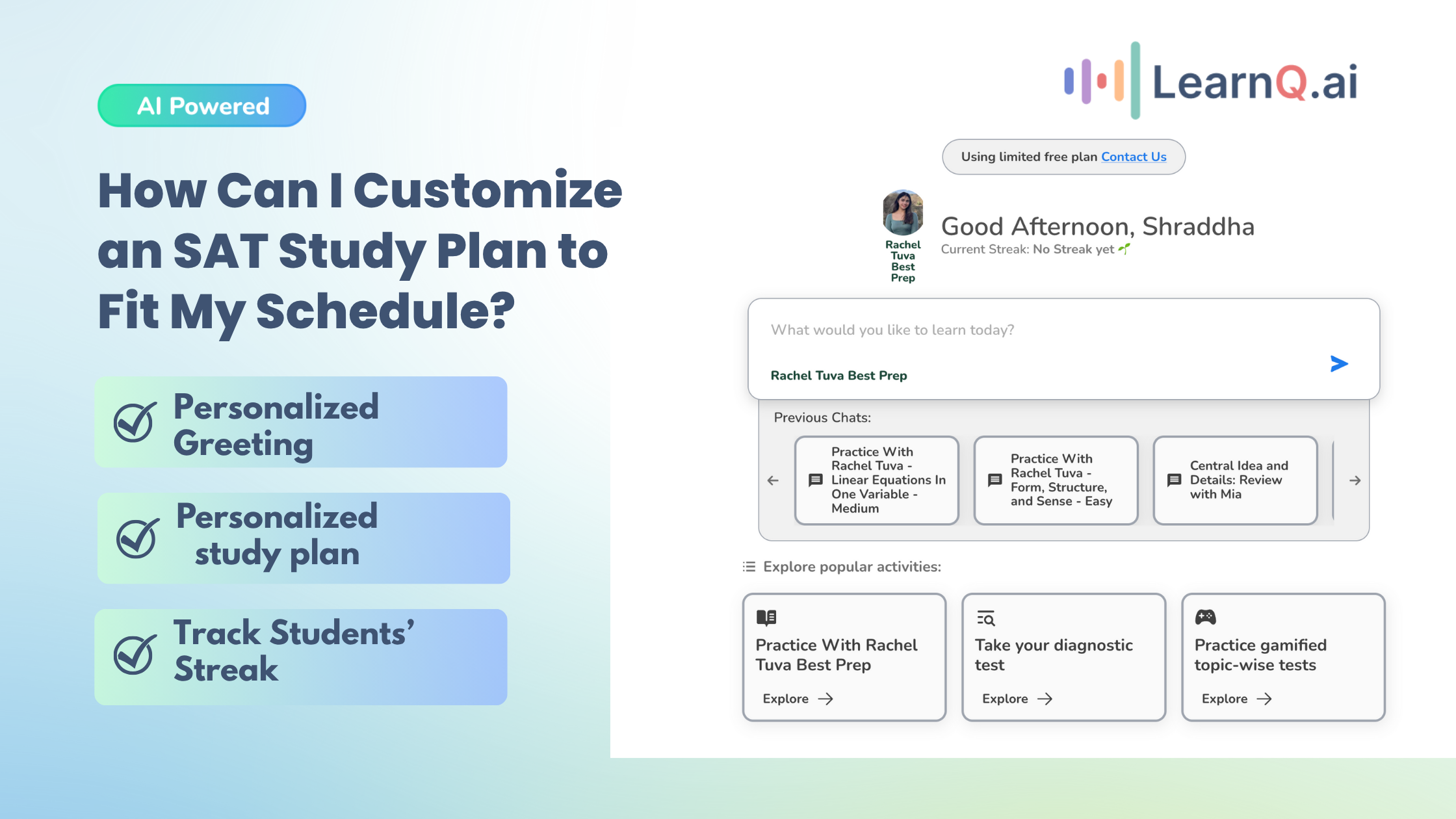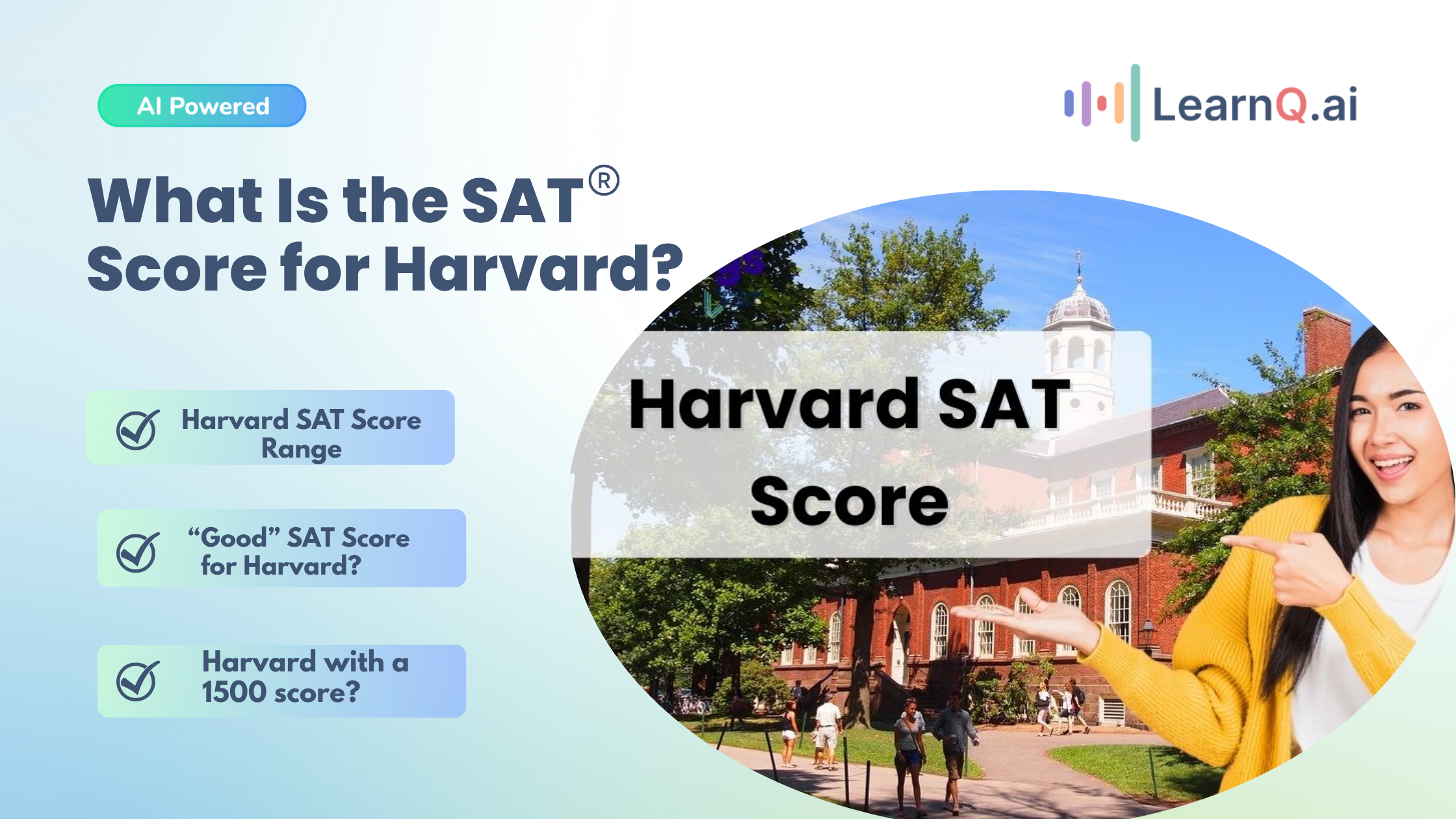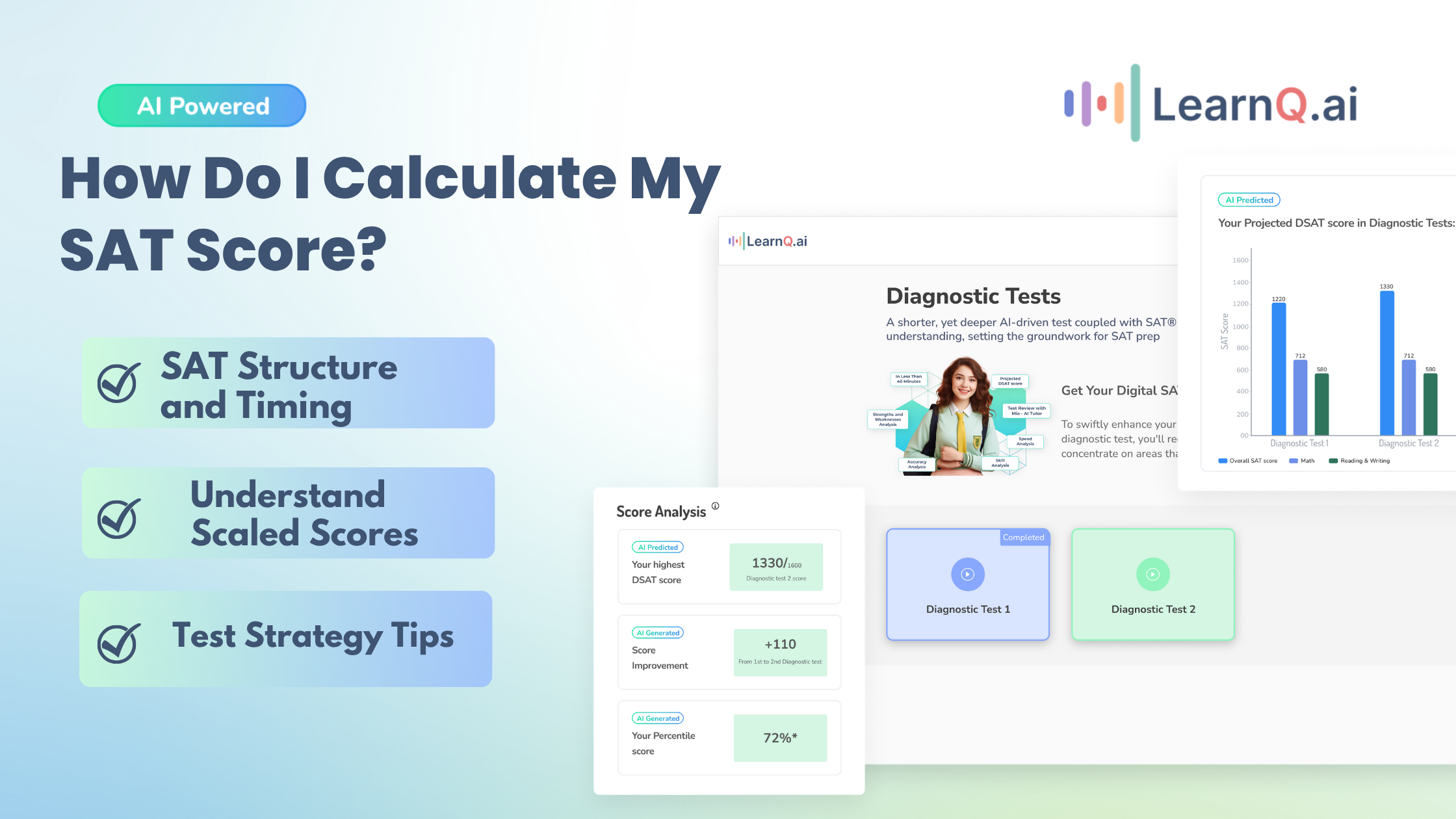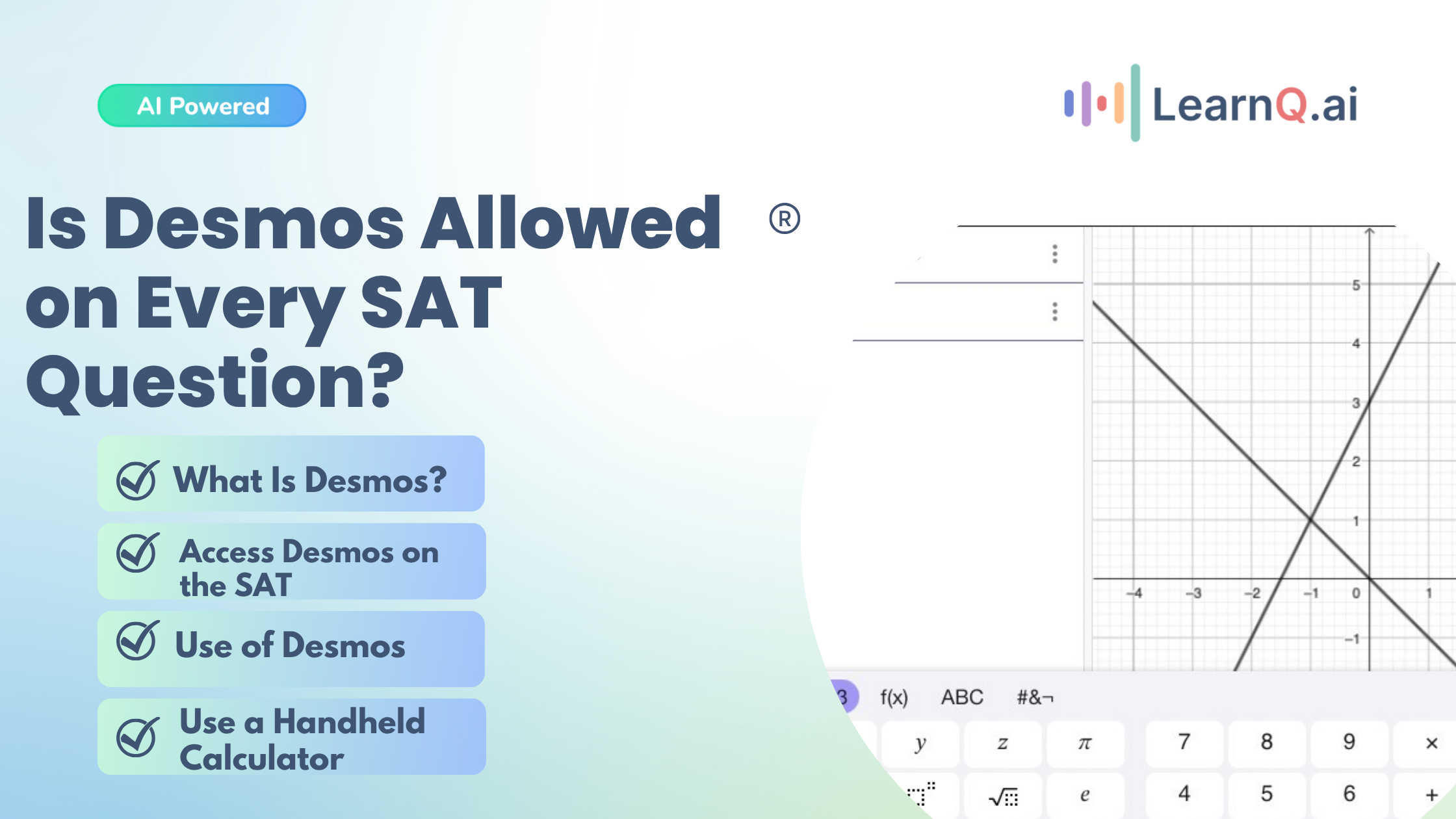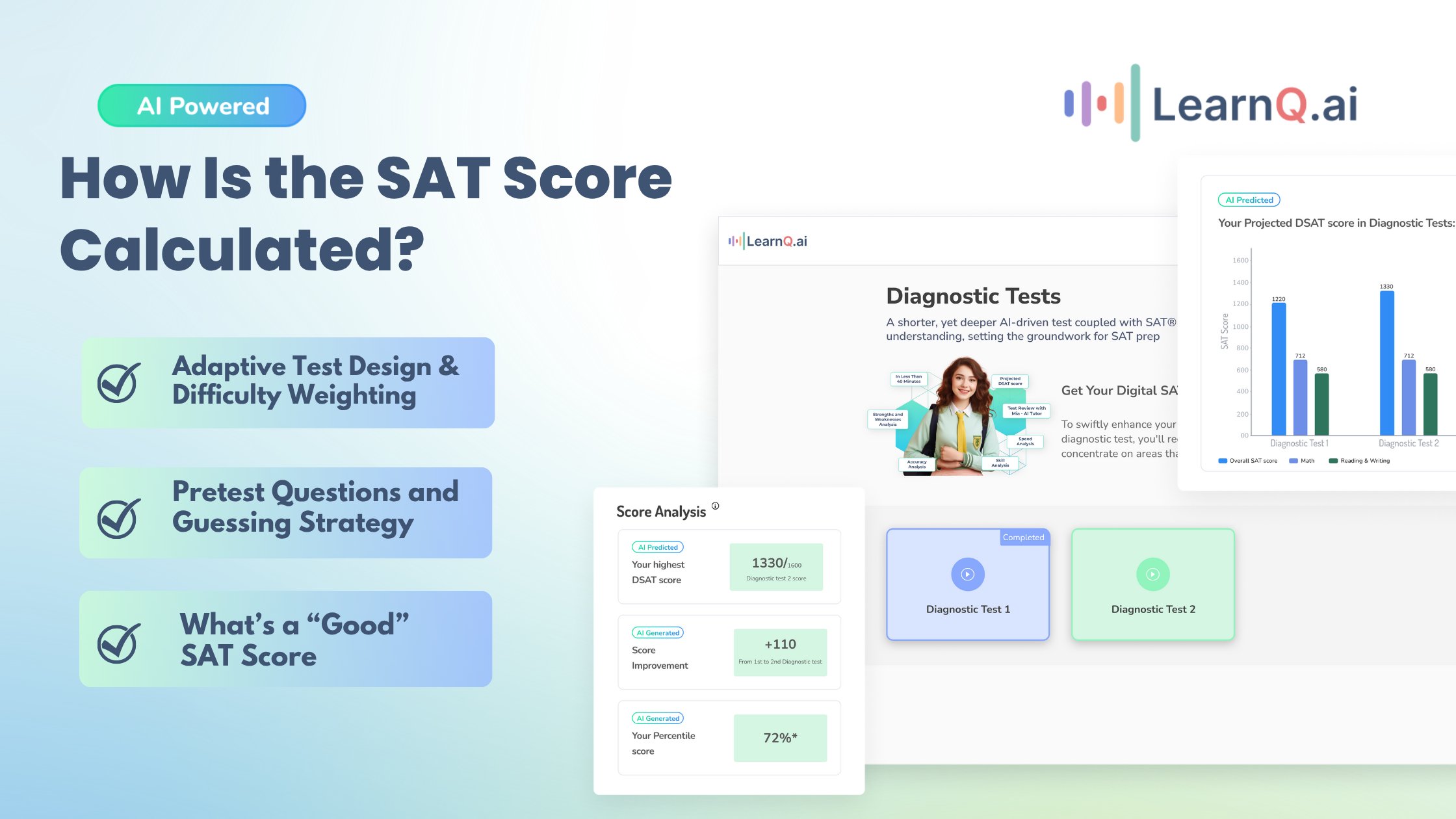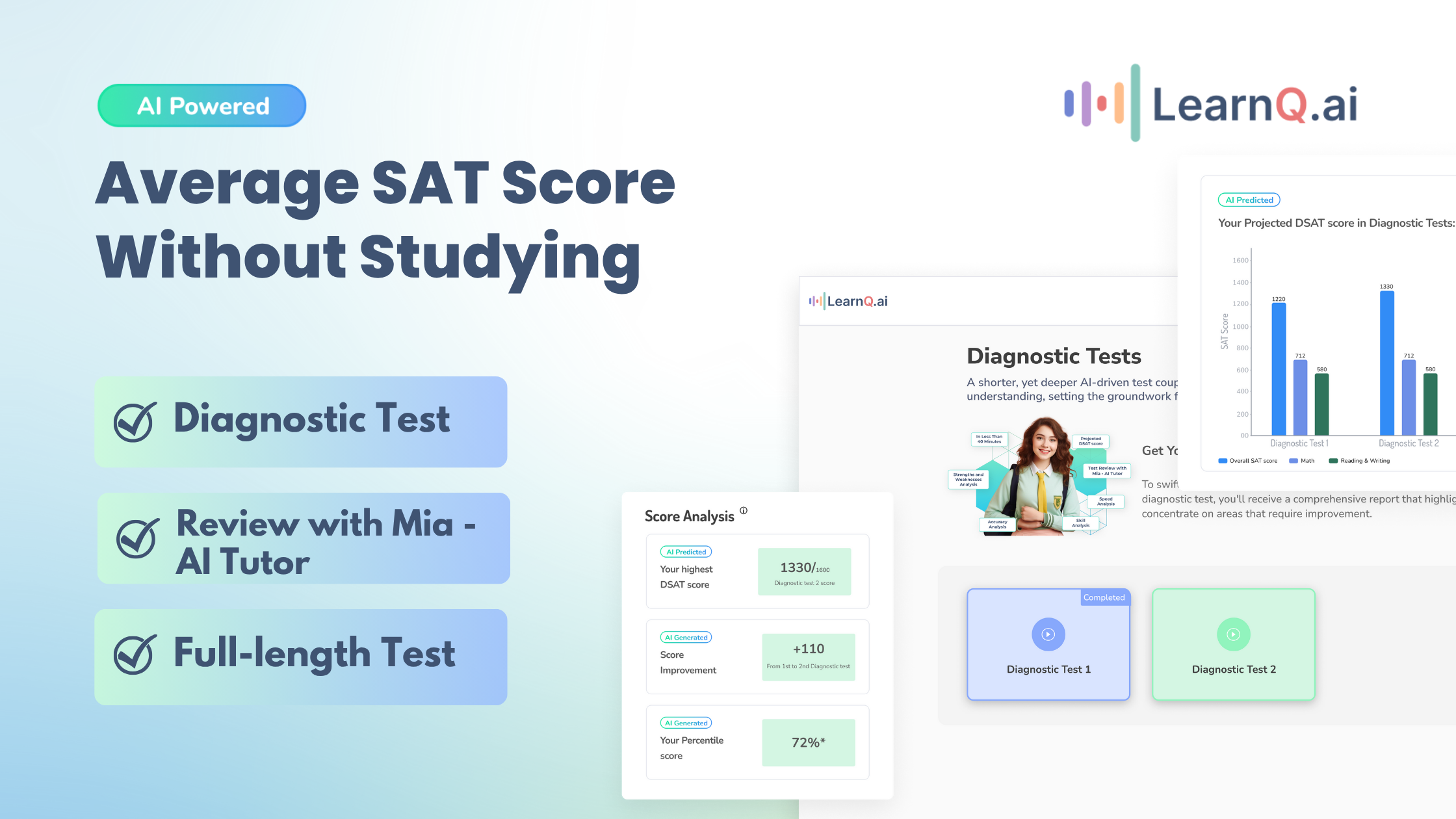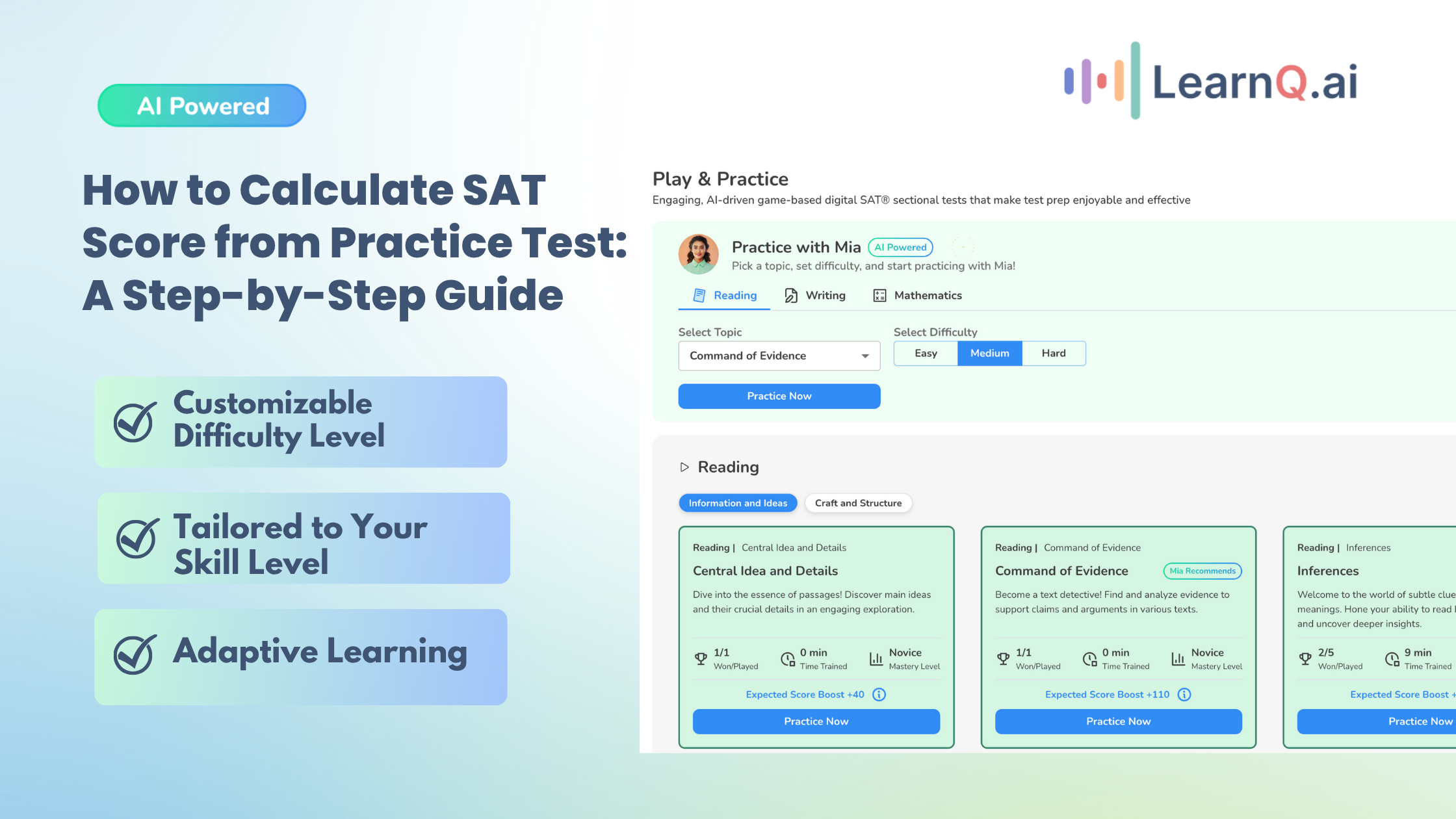The SAT has long been a pivotal part of the college admissions process, particularly for Ivy League schools. With highly competitive applicant pools, having a strong SAT score can significantly enhance your application. While other factors like GPA, extracurriculars, and personal essays also matter, a solid SAT score is often one of the first benchmarks considered by admissions officers.
In this blog, we will break down what is a good SAT score for Ivy League schools, examine how scores fit into the larger admissions landscape, and provide strategies to help you reach your target score using tools like LearnQ.ai.
LearnQ.ai is Powered by VEGA AI—Is your Institute Next?
Give students a Duolingo-style test-prep platform with Shopify-level customization for tutors and institutes.
Understanding the SAT Format
The Digital SAT represents a shift from the traditional test, incorporating modern elements to streamline the process. The test now focuses on two primary sections:
- Evidence-Based Reading and Writing (ERW): This section evaluates your ability to comprehend passages, analyze texts, and demonstrate your command of English conventions.
- Math: The Math section covers topics such as algebra, geometry, and data analysis and tests problem-solving skills and mathematical reasoning.
Both sections are scored on a 200-800 scale, combining for a total possible score of 1600.
What’s important to note is that while the Digital SAT is shorter and more user-friendly than its predecessor, it still demands thorough preparation. Ivy League institutions look for high proficiency levels in both areas, especially if you are applying to STEM programs where Math scores often weigh more heavily.
Scoring Range
SAT scores range from 400 to 1600, with each section contributing up to 800 points. But it’s not just about the overall score. Ivy League admissions teams closely examine your sectional scores to ensure you have strong skills in both Reading/Writing and Math.
Enhance your Digital SAT study routine with AI-driven insights and personalized practice tests.
For example, a student applying to a liberal arts program at Yale may find the ERW score more scrutinized. In contrast, an engineering applicant at Princeton will need to showcase top-tier Math scores. Understanding this sectional importance can help you tailor your study plan to the specific requirements of your target school.
LearnQ.ai Tools
To prepare effectively for the Digital SAT, LearnQ.ai offers specialized tools that adapt to your learning needs. Their Free Diagnostic Test allows you to identify strengths and weaknesses in real-time. Whether you need more focus on Math or Reading, LearnQ.ai personalizes your study plan, helping you allocate time efficiently to the areas that need improvement.
Ivy League Admission Trends
One of the most common questions students ask is: what is a good SAT score for Ivy League schools? Let’s look deeper into the average SAT scores for each institution:
- Harvard University: 1470–1570
- Yale University: 1460–1560
- Princeton University: 1450–1570
- Columbia University: 1450–1570
- University of Pennsylvania: 1450–1560
- Brown University: 1440–1560
- Dartmouth College: 1440–1560
- Cornell University: 1430–1550
Keep in mind that these are the middle 50% ranges for admitted students. If your scores fall within these ranges, your SAT performance is considered competitive. However, aiming for the higher end of these ranges—typically 1500 or above—gives you a stronger edge, particularly if you are applying to schools like Harvard, Princeton, or Columbia.
Importance of Context in Scores
Ivy League schools adopt a holistic review process, where your academic record, personal qualities, and contributions to your community are weighed alongside your test scores. A perfect score of 1600 won’t guarantee admission if the rest of your application is weak. Likewise, a score of 1450 can still lead to success if your GPA, extracurriculars, and personal essays are exceptional.
This holistic approach underscores the importance of being a well-rounded candidate. While aiming for a strong SAT score is essential, don’t neglect the other parts of your application.
Insights from LearnQ.ai
Using LearnQ.ai’s performance tracking tools, you can better understand how your SAT score compares to trends in Ivy League admissions. By evaluating your progress with their AI-powered analytics, you’ll be able to adjust your study plan to reach the score you need. These insights not only help you improve but also provide a clear picture of where you stand in relation to the competitive applicant pool.
Defining a “Good” SAT Score for Ivy League
In determining what is a good SAT score for Ivy League, it’s clear that 1500+ is the target for students looking to stand out. However, a score of 1450 or above can still make you competitive, particularly if other elements of your application—such as your GPA or extracurriculars—are strong.
Remember, while test-optional policies may reduce the weight of SAT scores for some applicants, submitting a high score can still enhance your application. It demonstrates academic readiness and may be the factor that differentiates you from other candidates.
Variability Among Schools
Not all Ivy League schools prioritize SAT scores the same way. For instance, Cornell and Brown tend to look more favorably at students with diverse backgrounds and interests. In contrast, Harvard and Princeton lean heavily on academic metrics like SAT scores, especially for competitive programs like pre-med or economics.
Therefore, when asking what is a good SAT score for Ivy League, consider the specific expectations of each institution. Tailoring your preparation to the school’s focus can increase your chances of standing out in a competitive applicant pool.
Role of Score Trends Over Time
SAT score requirements at Ivy League schools have risen over time as the applicant pool becomes more competitive. Staying up to date with trends is essential.
Leveraging LearnQ.ai
With tools like LearnQ.ai, you can set realistic goals and steadily improve your score through personalized learning pathways. The AI-powered adaptive tests and real-time feedback allow you to adjust your strategies on the fly, ensuring you are always working toward the most achievable, impactful score.
Preparing for the SAT
To excel in the SAT, it’s important to take a methodical approach to studying. Break down your preparation into manageable sections, focusing on mastering key areas like algebra, reading comprehension, and data interpretation. Regularly review your progress and adjust your study methods to suit your learning style.
Enhance your Digital SAT study routine with AI-driven insights and personalized practice tests.
Utilizing LearnQ.ai for Preparation
The gamified digital SAT prep on LearnQ.ai makes studying more engaging, allowing you to retain information better. Whether it’s quick quizzes to test your knowledge or full-length practice exams, LearnQ.ai adapts to your needs, making SAT prep more efficient and enjoyable.
Practice Tests and Performance Tracking
Taking regular practice tests is crucial to gauge your readiness. LearnQ.ai tracks your performance, offering real-time analytics that helps you understand your improvement areas. By constantly evaluating your progress, you’ll be able to fine-tune your study plan and ensure you are prepared on test day.
LearnQ.ai is powered by VEGA AI—Is your institute next?
Offer students a Duolingo-style test-prep platform with Shopify-level customization for tutors and institutes.






Conclusion
While securing a high SAT score is essential for Ivy League admissions, don’t forget the importance of being a well-rounded applicant. Whether your target score is 1500 or slightly lower, having a structured study plan and leveraging tools like LearnQ.ai can greatly improve your chances of success.
For personalized test prep and guidance, get started with LearnQ.ai today. Their AI-driven learning tools can help you maximize your potential and boost your test scores. With LearnQ, you can access customized learning strategies, free diagnostic tests, practice tests, and real-time performance feedback.
Whether you’re preparing for the SAT or ACT, LearnQ can provide the tools you need to succeed. You can also connect with other SAT students on Discord and share tips, tricks, and support as you conquer the SAT together.

